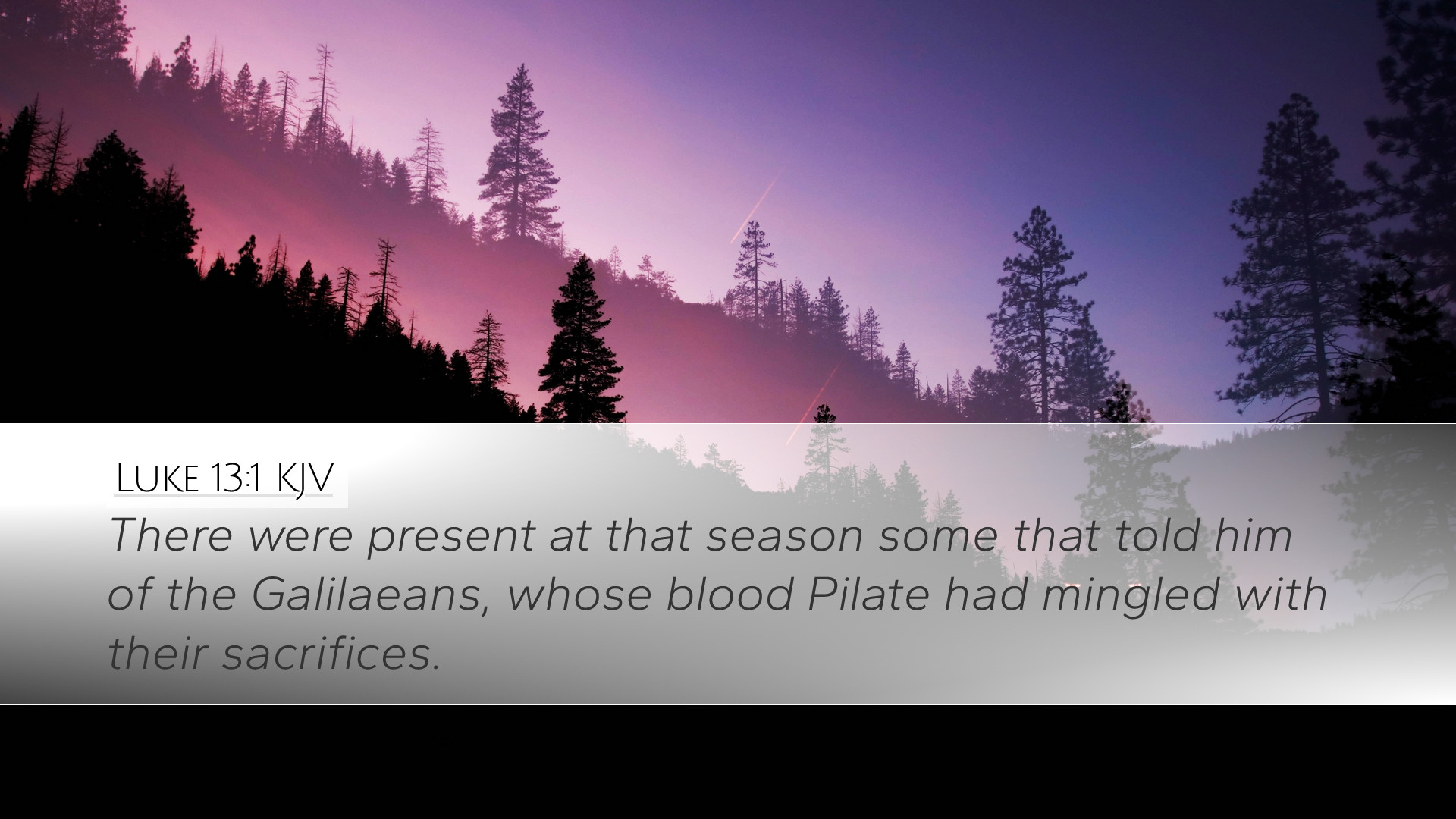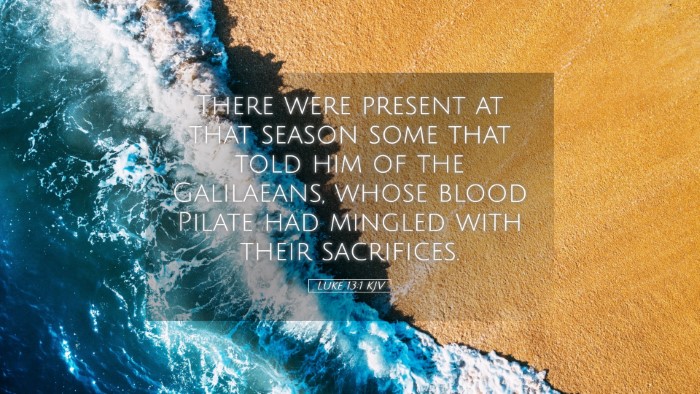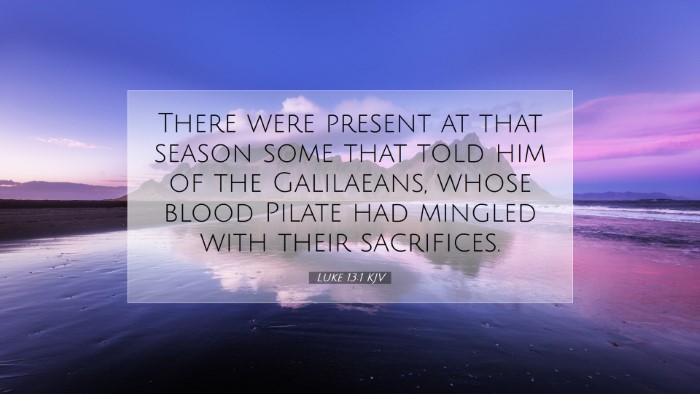Commentary on Luke 13:1
Verse: "There were present at that season some that told him of the Galileans, whose blood Pilate had mingled with their sacrifices."
Introduction
This verse opens a crucial dialogue among the people regarding suffering, divine justice, and the human condition. The historical context surrounding this verse provides insights into the political and social tensions of the time, particularly between the Jewish people and Roman authorities.
Contextual Background
In this passage, some Galileans had faced a tragic fate at the hands of Pilate. They had come to the temple to offer sacrifices, yet their blood became mingled with the blood of the animals they were offering. This incident highlights both the brutality of oppressive regimes and the fragile nature of human life.
Insights from Matthew Henry
Matthew Henry emphasizes the profound moral inquiry that arises from this tragedy. He states that such events remind us that external calamities do not discriminate between the righteous and the unrighteous. Suffering is an inevitable part of the human experience, and it often raises questions about divine justice.
Insights from Albert Barnes
Albert Barnes notes that the mention of sacrifices points to a central aspect of Jewish worship, underscoring the gravity of this act of violence. He interprets this mingling of blood as a symbol of the defilement of holy acts. Barnes also reflects on the human tendency to assume that misfortune is a direct result of personal sin, urging a reevaluation of such assumptions about divine retribution.
Insights from Adam Clarke
Adam Clarke adds a sociopolitical layer to the analysis, suggesting that the Galileans’ execution by Pilate was indicative of wider tensions between the Jewish populace and Roman rule. He points out that such discussions with Jesus set the stage for understanding His teachings on repentance and the nature of divine providence.
Theological Reflections
This passage compels theologians to grapple with the problem of evil. Why do the innocent suffer? Clarke elucidates that while the innocent may appear to suffer injustice, it is ultimately a part of the greater narrative of divine redemption.
Henry points out that Jesus responds to this inquiry with a call to repentance, suggesting that the focus should not solely be on external tragedies but rather on internal transformation. This direction towards self-reflection is essential for understanding his subsequent teachings.
Lessons for Pastors and Theologians
- Understanding Suffering: This verse serves as a reminder of the need to comprehend suffering in the light of Scripture. It challenges leaders to provide pastoral care that speaks to the heart of anxiety over divine justice.
- The Call to Repentance: Both Henry and Clarke emphasize the necessity of repentance. For pastors, this reflects the core Christian message that amidst tragedy, the path to divine relationship and healing lies in turning towards God.
- God’s Sovereignty: This incident is a testament to God’s sovereign plan amid human calamities. The theological undertones of this passage are significant for understanding the nature of God in times of turmoil.
- Addressing Misconceptions: Barnes’ insights serve as a reminder to clarify misconceptions surrounding divine justice and human suffering in sermons, emphasizing the importance of a holistic and nuanced approach.
Conclusion
Luke 13:1 invites readers to ponder profound questions about suffering, justice, and divine expectation. Both the historical context and the theological implications pave the way for deeper understanding, encouraging personal and communal reflection on the nature of repentance and our responses to injustice. As Matthew Henry, Albert Barnes, and Adam Clarke aptly noted, these teachings remain crucial for maintaining a faithful walk in a world rife with challenges.
Further Considerations
As students and scholars delve into this passage, it is beneficial to explore the broader context of Jesus' ministry and the cultural dynamics of first-century Palestine. This verse becomes a conduit for discussions that extend beyond immediate suffering, pointing towards the ultimate hope found in Christ.


